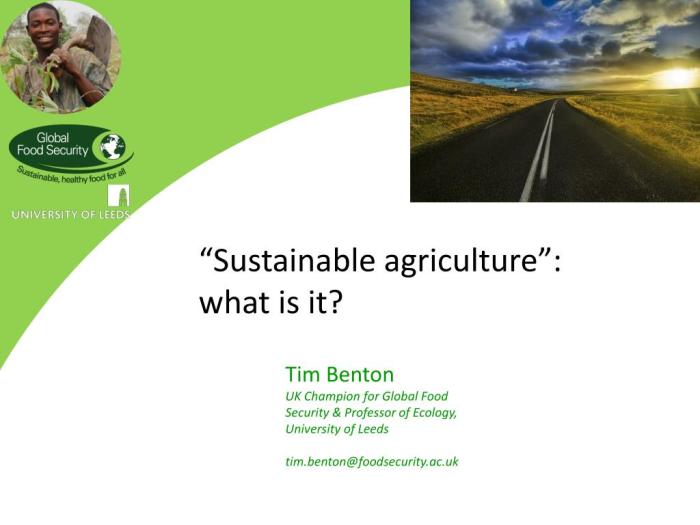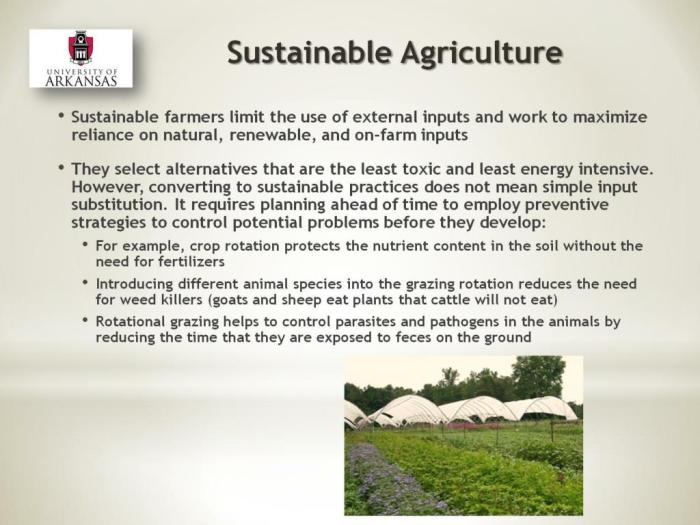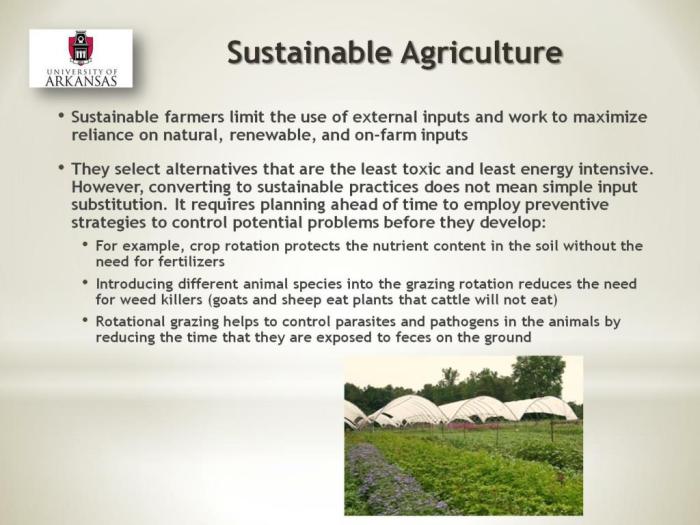Sustainable farming earth and space a must see at tnw conference – Sustainable Farming: Earth & Space a must see at TNW Conference – The future of food production is a hot topic, and this year’s TNW conference is diving headfirst into the innovative world of sustainable farming, exploring both terrestrial and extraterrestrial solutions.
The event will bring together experts, researchers, and innovators to discuss the pressing challenges facing our planet and the exciting possibilities of growing food in space.
From addressing the environmental impact of traditional agriculture to exploring the potential of vertical farming and hydroponics, the conference promises a comprehensive look at the latest advancements in sustainable agriculture. With climate change impacting food production and the global population on the rise, the need for sustainable solutions is more urgent than ever.
The Need for Sustainable Farming

The world’s population is growing, and with it, the demand for food. Traditional agricultural practices, however, are taking a heavy toll on the environment. These practices often rely on unsustainable methods that deplete natural resources, pollute the environment, and contribute to climate change.
Sustainable farming offers a solution by promoting practices that protect the environment and ensure food security for future generations.
Environmental Challenges Associated with Traditional Agriculture
Traditional agricultural practices contribute significantly to environmental degradation. These practices often rely on intensive use of fertilizers, pesticides, and water, which can have negative impacts on soil health, water quality, and biodiversity.
- Soil Degradation:Excessive tillage, monoculture cropping, and the use of synthetic fertilizers can lead to soil erosion, nutrient depletion, and loss of soil organic matter. This can reduce soil fertility and make it difficult for crops to grow.
- Water Pollution:Runoff from agricultural fields can carry fertilizers, pesticides, and animal waste into waterways, contaminating water sources and harming aquatic life. This can lead to eutrophication, where excessive nutrients cause algal blooms that deplete oxygen and kill fish.
- Biodiversity Loss:The use of pesticides and herbicides can kill beneficial insects and other organisms, disrupting natural ecosystems. Monoculture cropping practices also reduce biodiversity by creating uniform landscapes that lack habitat diversity.
- Greenhouse Gas Emissions:Agricultural activities, such as livestock production and rice cultivation, release significant amounts of methane and nitrous oxide, which are potent greenhouse gases that contribute to climate change.
The Role of Sustainable Farming Practices
Sustainable farming practices aim to minimize the negative environmental impacts of agriculture while ensuring food security and economic viability. These practices focus on conserving natural resources, reducing pollution, and promoting biodiversity.
- Conservation Tillage:This practice reduces soil erosion by minimizing disturbance to the soil. It involves leaving crop residue on the surface to protect the soil from wind and water erosion.
- Crop Rotation:Rotating different crops in a field helps to improve soil health by breaking pest cycles, increasing nutrient availability, and reducing the need for synthetic fertilizers.
- Organic Farming:Organic farming methods avoid the use of synthetic fertilizers, pesticides, and genetically modified organisms (GMOs). They rely on natural inputs such as compost and manure to improve soil fertility and pest control.
- Precision Agriculture:This technology uses sensors and data analysis to optimize crop yields and minimize inputs. It allows farmers to apply fertilizers and pesticides only where and when they are needed, reducing waste and environmental impact.
- Water Conservation:Sustainable farming practices include techniques like drip irrigation, which delivers water directly to plant roots, reducing evaporation and runoff. This helps to conserve water resources and minimize water pollution.
Examples of Sustainable Farming Methods and Their Benefits
There are many examples of sustainable farming methods that have been successfully implemented around the world.
- Agroforestry:This practice integrates trees with crops or livestock. Trees provide shade, windbreaks, and improve soil fertility, while crops and livestock can benefit from the nutrients and protection provided by the trees.
- Permaculture:Permaculture is a design system that mimics natural ecosystems to create sustainable and productive food systems. It emphasizes working with nature, rather than against it, and aims to create closed-loop systems that minimize waste and maximize efficiency.
- Vertical Farming:This method involves growing crops in stacked layers, maximizing space and reducing the need for land. It can also be used to grow crops in urban areas, reducing transportation costs and food miles.
Sustainable Farming in Earth’s Future: Sustainable Farming Earth And Space A Must See At Tnw Conference
The future of food production is intrinsically tied to the fate of our planet. As climate change intensifies, its impact on agriculture becomes increasingly apparent, demanding innovative solutions for sustainable farming practices. The need for resilient and adaptable agricultural systems is paramount, ensuring food security for a growing global population.
Climate Change and Food Production
Climate change poses significant challenges to global food production. Rising temperatures, altered precipitation patterns, and extreme weather events disrupt agricultural ecosystems, impacting crop yields and livestock productivity.
- Increased Temperatures:Elevated temperatures can lead to heat stress in crops, reducing their growth rate and yield. For example, a study by the Intergovernmental Panel on Climate Change (IPCC) projected a 10% decrease in global wheat production by 2050 due to rising temperatures.
- Changes in Precipitation:Shifts in rainfall patterns, including droughts and floods, can disrupt crop cycles and livestock grazing. Droughts can lead to water scarcity and crop failure, while excessive rainfall can cause soil erosion and crop damage.
- Extreme Weather Events:Extreme weather events, such as hurricanes, tornadoes, and hailstorms, can cause widespread crop damage and livestock losses, impacting food availability and prices.
Vertical Farming and Innovative Techniques
Vertical farming, a method of growing crops in stacked layers within controlled environments, presents a promising solution for sustainable agriculture. This approach offers several advantages:
- Increased Efficiency:Vertical farms utilize space more efficiently than traditional agriculture, allowing for higher yields in smaller areas. A study by the World Economic Forum estimated that vertical farms can produce up to 10 times more food per unit of land than conventional farming.
- Reduced Water Consumption:Vertical farms employ closed-loop irrigation systems, minimizing water waste and allowing for efficient water management. This is particularly important in arid regions where water resources are scarce.
- Controlled Environment:Vertical farms provide a controlled environment, allowing for optimal growing conditions and minimizing the impact of pests and diseases. This reduces the need for pesticides and herbicides, promoting sustainable practices.
Other innovative techniques that contribute to sustainable farming include:
- Precision Agriculture:Utilizing sensors, data analytics, and other technologies to optimize resource use and improve crop yields. This approach allows farmers to tailor their practices to specific field conditions, maximizing efficiency and minimizing environmental impact.
- Aquaponics:A system that integrates aquaculture (raising fish) and hydroponics (growing plants without soil) to create a closed-loop ecosystem. This method promotes resource efficiency, reduces waste, and produces both fish and vegetables.
- Agroecology:A holistic approach to farming that emphasizes ecological principles and sustainable practices. Agroecological systems focus on biodiversity, soil health, and natural pest control, promoting long-term productivity and resilience.
Urban Farming and Growing Populations, Sustainable farming earth and space a must see at tnw conference
As global populations continue to grow, urban areas are becoming increasingly important for food production. Urban farming, the practice of growing food in cities, offers several advantages:
- Local Food Production:Urban farms provide a source of fresh, local food, reducing reliance on long-distance transportation and promoting food security. This approach also contributes to community engagement and social cohesion.
- Reduced Food Miles:By producing food closer to consumers, urban farming minimizes transportation distances, reducing carbon emissions and environmental impact. This approach promotes sustainable food systems.
- Community Engagement:Urban farms often involve community participation, providing opportunities for education, recreation, and social interaction. These initiatives can foster a sense of ownership and responsibility for food production.
Sustainable Farming in Space

As humanity ventures further into the cosmos, the need for sustainable food production becomes paramount. Space exploration and colonization require innovative approaches to agriculture, defying the limitations of Earth’s environment. Sustainable farming in space presents a unique challenge, pushing the boundaries of our ingenuity and demanding solutions that are both efficient and resilient.
Challenges of Growing Food in Space
Growing food in space poses significant challenges due to the unique and demanding conditions of the extraterrestrial environment. These challenges are diverse and require careful consideration and innovative solutions.
- Microgravity:The absence of gravity affects plant growth and development. Roots may grow in unpredictable directions, and water distribution can be uneven. Additionally, the lack of gravity can disrupt the orientation of plants, leading to abnormal growth patterns.
Finish your research with information from why third party app stores are good for apples users and the company.
- Radiation:Space is exposed to high levels of cosmic radiation, which can damage plant cells and hinder growth. Shielding crops from radiation is essential for ensuring their viability and productivity.
- Limited Resources:Space missions are constrained by weight and volume limitations. This restricts the amount of water, soil, and other resources that can be transported, necessitating efficient resource utilization and recycling strategies.
- Closed Environments:Space habitats are closed systems, which can lead to the accumulation of waste products and changes in atmospheric composition. Maintaining optimal conditions for plant growth requires sophisticated environmental control systems.
Hydroponics and Aeroponics for Space Agriculture
Hydroponics and aeroponics are two promising techniques for space agriculture. These methods offer several advantages over traditional soil-based farming in the challenging conditions of space.
- Hydroponics:Hydroponics involves growing plants in nutrient-rich water solutions without soil. This method allows for precise control over nutrient delivery, reducing water consumption and minimizing waste. Hydroponic systems can be readily adapted to space environments, where water is a precious resource.
For example, the International Space Station (ISS) has successfully utilized hydroponic systems to grow fresh vegetables for astronauts.
- Aeroponics:Aeroponics involves growing plants in a mist environment, suspending their roots in the air. This method eliminates the need for soil altogether, allowing for even greater control over nutrient delivery and water usage. Aeroponics can also promote faster plant growth due to increased oxygen availability to roots.
While still in its early stages of development for space applications, aeroponics holds significant potential for future space agriculture.
Closed-Loop Systems for Sustainable Food Production in Space
Creating closed-loop systems for sustainable food production in space is crucial for long-duration missions and space colonization. Closed-loop systems aim to minimize waste and maximize resource utilization, ensuring a self-sustaining ecosystem for space habitats.
- Waste Recycling:Closed-loop systems involve recycling waste products, such as human waste and plant waste, to create nutrients for plant growth. This reduces the need for external resources and minimizes waste generation.
- Water Recovery:Water is a critical resource in space, and closed-loop systems aim to recover and reuse water from various sources, such as human perspiration, urine, and plant transpiration. This ensures a sustainable water cycle within the space habitat.
- Bioregenerative Life Support Systems:Bioregenerative life support systems integrate plants, animals, and microorganisms to create a self-sustaining ecosystem. Plants provide oxygen and food, while animals and microorganisms decompose waste products and provide nutrients for plant growth. These systems are still under development, but they hold the potential for creating truly sustainable space habitats.
The TNW Conference
The TNW Conference, a prominent technology event held annually in Amsterdam, has emerged as a crucial platform for driving innovation in sustainable agriculture. It serves as a hub for experts, researchers, and entrepreneurs to showcase groundbreaking solutions, foster collaboration, and inspire action towards a more sustainable food system.
The TNW Conference: A Catalyst for Sustainable Agriculture Innovation
The TNW Conference provides a unique environment for the convergence of technology, sustainability, and agriculture. It offers a platform for sharing cutting-edge research, discussing emerging trends, and exploring practical applications of technology in sustainable farming. This cross-sectoral approach facilitates the development of innovative solutions that address critical challenges in the agricultural sector.
Key Trends and Breakthroughs in Sustainable Agriculture at TNW
The TNW Conference has become a showcase for transformative advancements in sustainable agriculture. The conference features presentations, workshops, and interactive sessions that highlight the latest breakthroughs in areas such as:
- Precision Agriculture:This involves using data and technology to optimize resource use, improve crop yields, and minimize environmental impact. The conference has showcased advancements in sensor technology, data analytics, and artificial intelligence for precision farming.
- Vertical Farming:This innovative approach involves growing crops in stacked layers indoors, minimizing land use and optimizing resource efficiency. The conference has highlighted successful vertical farming initiatives and the potential of this technology to address food security concerns.
- Sustainable Food Systems:The conference explores solutions for creating more sustainable food systems, including reducing food waste, promoting sustainable consumption patterns, and developing alternative protein sources.
- AgTech Startups:The TNW Conference provides a platform for agtech startups to showcase their innovative solutions and connect with investors, industry leaders, and potential partners. This fosters the development and adoption of new technologies in sustainable agriculture.
Expert Insights on Sustainable Farming
The TNW Conference brings together leading experts and researchers in sustainable agriculture. These individuals share their insights, research findings, and practical experiences, providing valuable perspectives on the future of food production.
“The TNW Conference is a critical platform for driving innovation in sustainable agriculture. It brings together a diverse range of stakeholders to share knowledge, collaborate on solutions, and accelerate the transition towards a more sustainable food system.”Dr. [Expert Name], [Affiliation]
Sustainable Farming
Sustainable farming practices are essential for ensuring food security and protecting our planet’s resources for future generations. This approach emphasizes environmentally friendly methods that promote biodiversity, conserve water and soil, and reduce reliance on synthetic fertilizers and pesticides.
Different Approaches to Sustainable Farming Across the World
Sustainable farming practices are implemented in various ways across the globe, reflecting local contexts, cultures, and available resources.
- Agroecology: This approach emphasizes the integration of ecological principles into agricultural practices. It focuses on building soil health, promoting biodiversity, and using natural pest control methods. Agroecology is widely practiced in Latin America, Africa, and Asia, where traditional farming systems have long relied on ecological principles.
- Organic Farming: This approach prohibits the use of synthetic fertilizers, pesticides, and genetically modified organisms (GMOs). Organic farming emphasizes natural inputs, such as compost and manure, and promotes soil health and biodiversity. It is a popular practice in Europe, North America, and Australia.
- Permaculture: This approach focuses on creating self-sustaining agricultural systems that mimic natural ecosystems. It emphasizes using natural resources efficiently, reducing waste, and creating a closed-loop system. Permaculture is widely practiced in Australia, New Zealand, and parts of Europe.
- Precision Agriculture: This approach uses technology, such as GPS, sensors, and data analysis, to optimize crop yields and minimize environmental impact. Precision agriculture allows farmers to tailor their practices to specific field conditions, reducing fertilizer and pesticide use. It is becoming increasingly popular in developed countries with advanced agricultural technologies.
Key Initiatives and Organizations Promoting Sustainable Agricultural Practices
Several initiatives and organizations are working to promote sustainable agricultural practices globally.
- The Food and Agriculture Organization of the United Nations (FAO): The FAO promotes sustainable agriculture through its initiatives, such as the “Sustainable Development Goals” and the “Global Strategy for Food Security.”
- The World Wide Fund for Nature (WWF): The WWF advocates for sustainable agriculture practices that protect biodiversity and conserve natural resources.
- The International Fund for Agricultural Development (IFAD): IFAD provides financial and technical assistance to developing countries to promote sustainable agriculture practices.
- The Rodale Institute: The Rodale Institute is a non-profit organization that conducts research and promotes organic farming practices.
- The Organic Farming Research Foundation (OFRF): The OFRF supports research and education on organic farming practices.
Implementing Sustainable Farming Solutions in Different Regions
The implementation of sustainable farming solutions requires a tailored approach, considering the specific needs and challenges of each region.
- Developing Countries: In developing countries, promoting sustainable agriculture practices often involves empowering smallholder farmers with access to knowledge, resources, and markets. This can be achieved through training programs, farmer cooperatives, and access to microfinance.
- Developed Countries: In developed countries, promoting sustainable agriculture practices often involves encouraging adoption of advanced technologies, such as precision agriculture, and supporting policies that promote sustainable farming practices.





